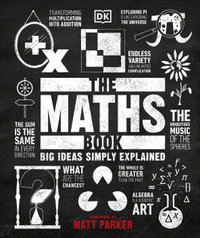"Mathematical handbooks are among the most essential library resources, providing compilations of formulas, tables, graphs, etc. Traditional handbooks speak equally to experts and casual users of mathematics. Other handbooks, such as the current work, are really encyclopedic compendiums of survey articles primarily addressing readers who make mathematics their main business. They supplement systematic monographs that develop subjects methodically but require extreme reader commitment and journal literature that provides quick access to specific results for those with prerequisite knowledge. Researchers will benefit from rapid authoritative citations to newer or lesser-known results. Students, undergraduate and graduate, will find accessible, systematic snapshots of whole subjects, helping them discover what they most wish to learn and, equally, what they will then need to learn on the way. Enumerative combinatorics means counting problems, so that subject begins classically with permutations and combinations but is active now with connections to probability, graph theory, statistical mechanics, geometry, representation theory, analysis, and computer science. Chapters here divide between general counting methods, both exact and approximate, and special classes of objects for counting via any suitable means. The volume, part of the 'Discrete Mathematics and Its Applications' series, is well edited by Bona (Univ. of Florida), who successfully pools the expertise of leaders in the field. Summing up: Recommended. Upper-division undergraduates through professionals/practitioners."
-D. V. Feldman, University of New Hampshire, Durham, USA, for CHOICE, March 2016
"I cannot think of any topic that I would like to have seen presented here that the book omits. The chapters discuss not only methods in the study of enumerative combinatorics, but also objects that lend themselves to study along these lines. ... accessible to a wide audience ... this will clearly be a book that anybody with a serious interest in combinatorics will want to have on his or her bookshelf, and of course it belongs in any self-respecting university library. Having seen firsthand what it takes to edit a handbook like this, I know that Miklos Bona must have invested a great deal of time and effort in the creation of this volume, as did the authors of the individual chapters. Their efforts have not been in vain; this is a valuable book."
-MAA Reviews, July 2015

























